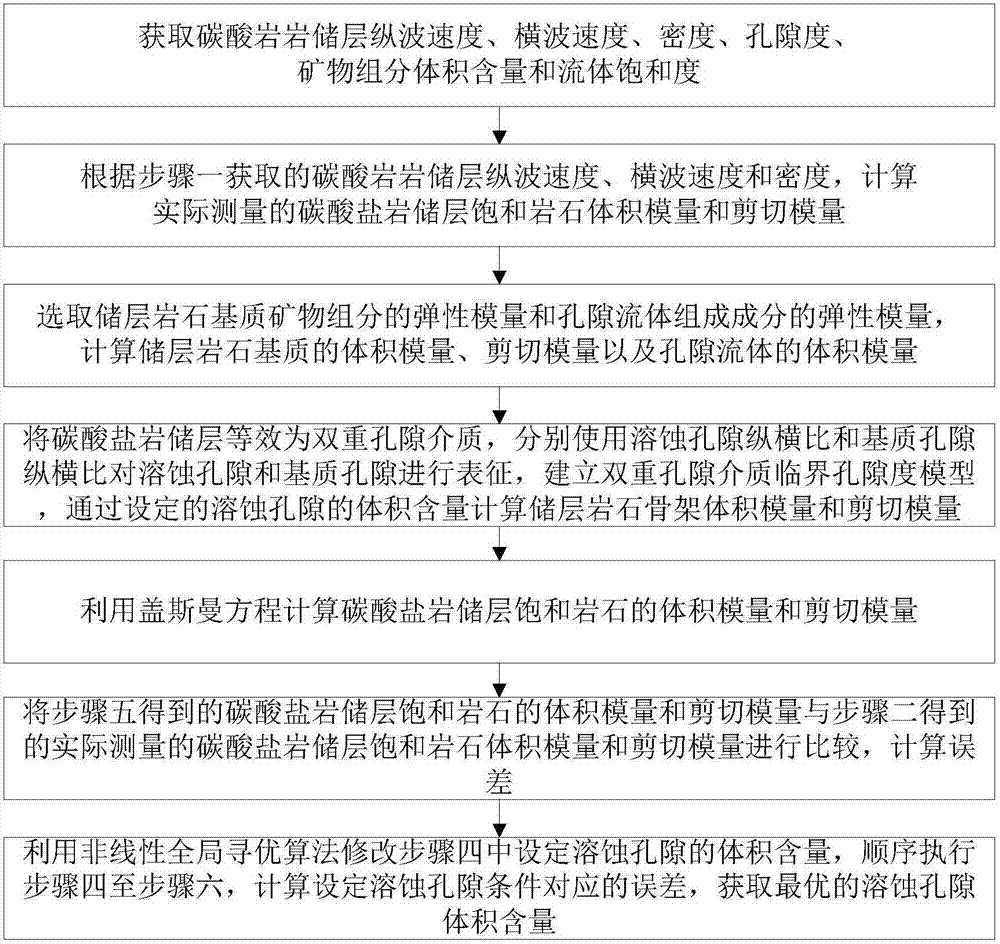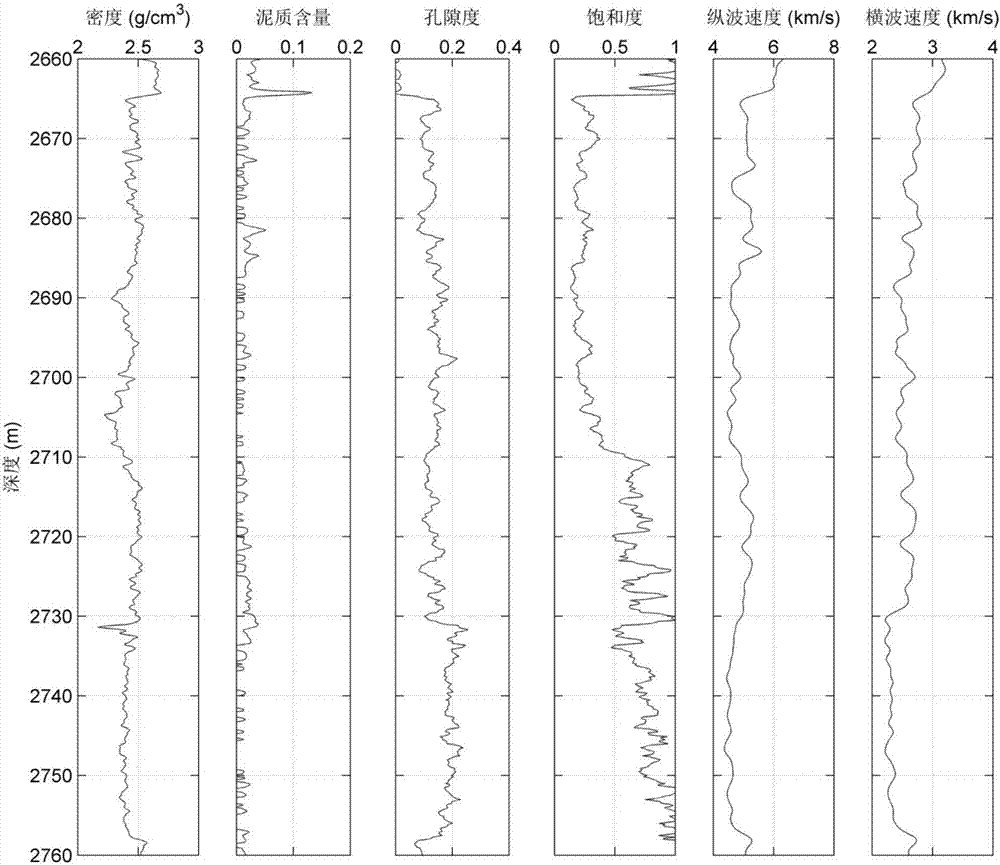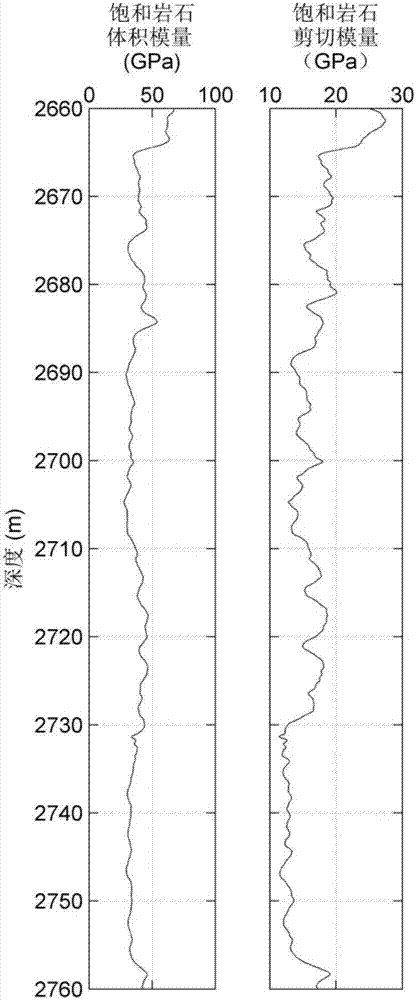A Prediction Method of Dissolution Pore Volume Content in Carbonate Reservoir
A carbonate reservoir, pore volume technology, applied in the direction of measuring device, permeability/surface area analysis, suspension and porous material analysis, etc., can solve the problem of pore type volume content prediction, the influence of inability to characterize elastic modulus, Unable to solve problems such as carbonate reservoirs, to achieve the effect of universal applicability
- Summary
- Abstract
- Description
- Claims
- Application Information
AI Technical Summary
Problems solved by technology
Method used
Image
Examples
Embodiment Construction
[0043] The present invention will be further described below in conjunction with the accompanying drawings and embodiments.
[0044] Such as figure 1 As shown, a method for predicting the volume content of dissolved pores in carbonate rock reservoirs includes the following steps:
[0045] Step 1: Obtain the P-wave velocity, S-wave velocity, density, porosity, volume content of mineral components and fluid saturation of carbonatite reservoir; figure 2 It is the logging curve of a gas-bearing well in an overseas oilfield, including carbonatite reservoir compressional wave velocity, shear wave velocity, density, porosity, mineral component volume content and fluid saturation.
[0046] Step 2: Calculate the actual measured saturated rock bulk modulus and shear modulus of the carbonate reservoir according to the P-wave velocity, S-wave velocity and density obtained in Step 1;
[0047] Such as figure 2 As shown, the above parameters are obtained by calculating the compressional...
PUM
 Login to View More
Login to View More Abstract
Description
Claims
Application Information
 Login to View More
Login to View More - R&D
- Intellectual Property
- Life Sciences
- Materials
- Tech Scout
- Unparalleled Data Quality
- Higher Quality Content
- 60% Fewer Hallucinations
Browse by: Latest US Patents, China's latest patents, Technical Efficacy Thesaurus, Application Domain, Technology Topic, Popular Technical Reports.
© 2025 PatSnap. All rights reserved.Legal|Privacy policy|Modern Slavery Act Transparency Statement|Sitemap|About US| Contact US: help@patsnap.com



